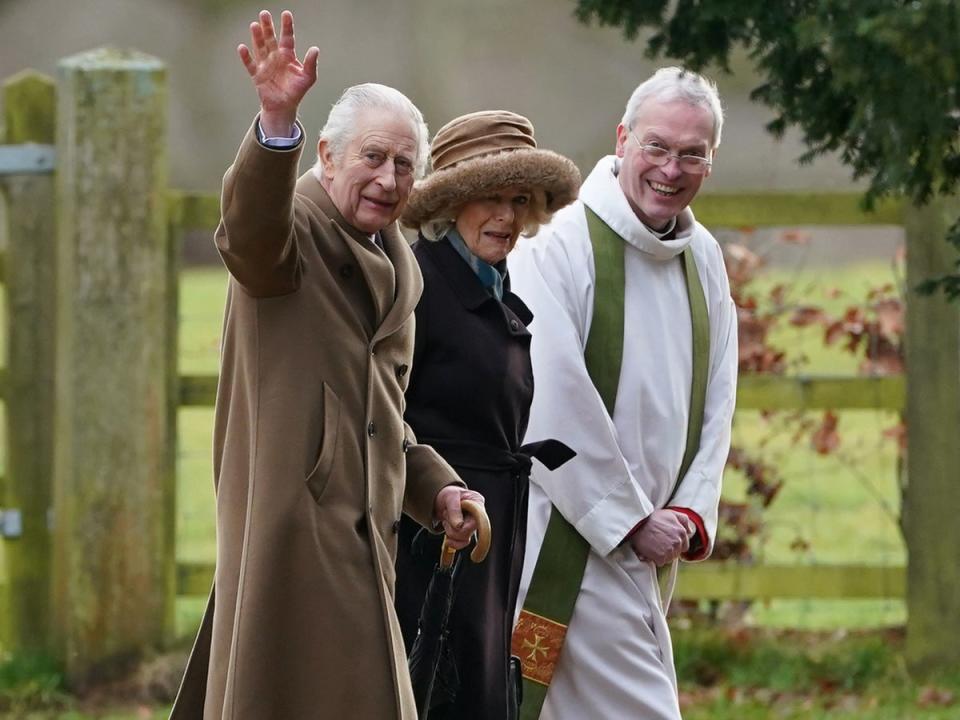King Charles smiles and waves in first public outing since prostate surgery
King Charles has been seen waving and walking with the Queen by his side on his first public outing since leaving hospital following treatment for an enlarged prostate.
The King underwent a corrective procedure for the benign condition last week and it has been reported he could take up to a month off from public duties as he recuperates.
On Sunday, Charles was pictured attending a church service at St Mary Magdalene Church in Sandringham, giving a smile and wave to photographers outside.
The public outing comes nearly one week after he left the London Clinic following the corrective procedure last Monday.
He left with Queen Camilla just hours after the Princess of Wales was discharged from the same hospital after having abdominal surgery nearly two weeks earlier.

Charles spent time at his daughter-in-law’s bedside before his own treatment. Kate is not expected to return to official duties until after Easter.
The King was diagnosed with the benign condition on 17 January while staying at Birkhall in Scotland, after going for a check-up because he was experiencing symptoms.
He is understood to have wanted to share the news to encourage other men to get themselves checked.
The King, who acceded to the throne 16 months ago, was urged to rest by his doctors ahead of the corrective procedure.
NHS England said the “enlarged prostate” page on the NHS website received one visit every five seconds on the day the King’s diagnosis was announced, with further huge boosts in visits in the days that followed.
Buckingham Palace has said the King was “delighted” to learn his diagnosis was having a “positive impact on public health awareness”.
One in three men over the age of 50 will have symptoms of an enlarged prostate, including needing to visit the toilet more often and with more urgency and difficulty emptying the bladder.
An enlarged prostate, known as benign prostatic hyperplasia, does not usually pose a serious threat to health and it is not cancer.
But patients may need to have several tests for the condition to rule out the possibility they have another illness with similar symptoms, such as prostate cancer.
Surgery is usually only recommended for moderate to severe symptoms which have not responded to medicine, the NHS website says.


